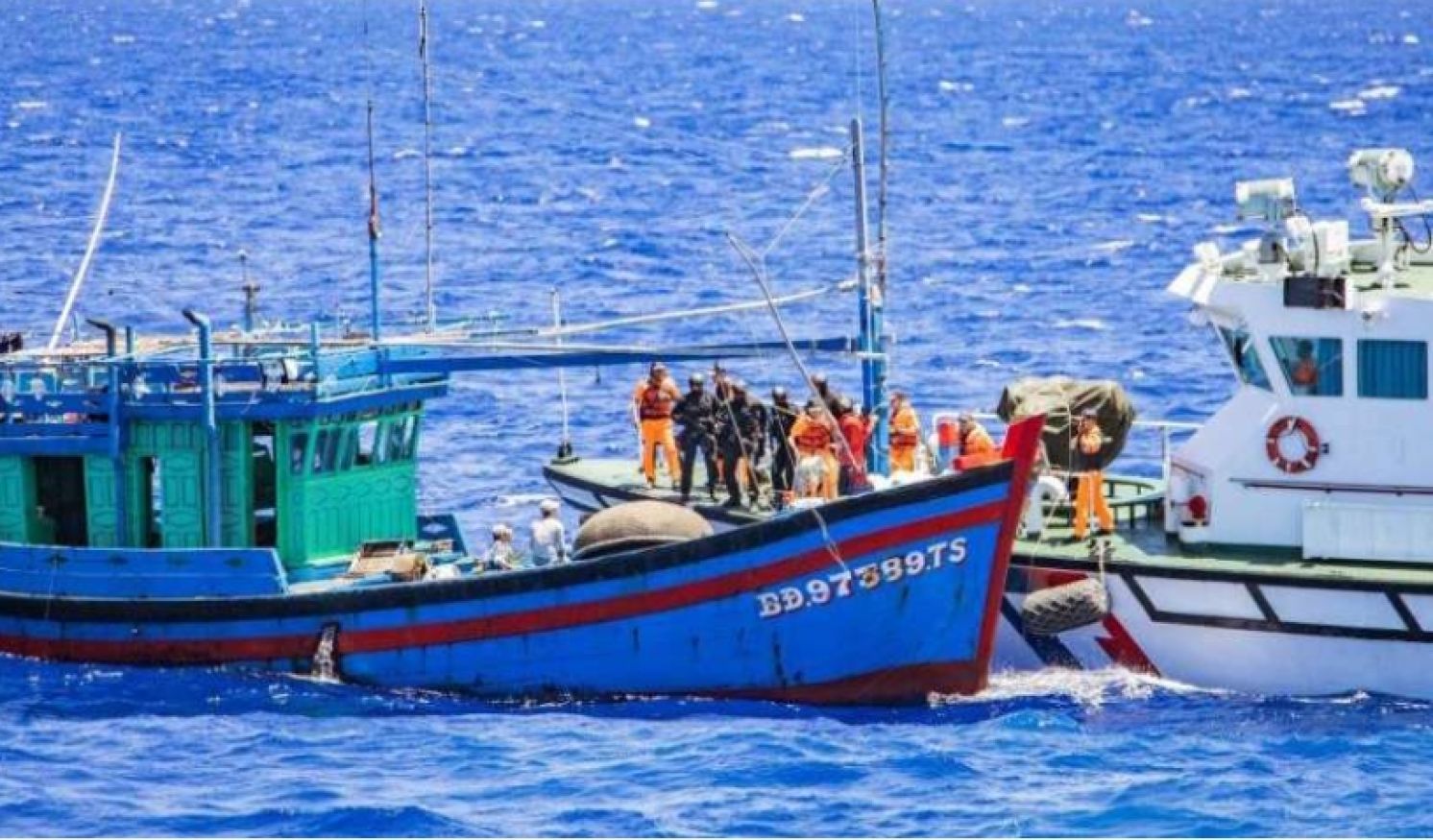
With No Way to Communicate, Cross-Strait Fishing Rights Face Deadlock:Thin Line Between Verbal Sparring and Misfire
United Daily News Editorial, February 15, 2024
A mainland Chinese speedboat from Fujian fishing in Kinmen waters capsized during a chase by Taiwan’s Coast Guard, resulting in two casualties. The Taiwan Affairs Office (TAO) of mainland China’s State Council strongly condemned the Democratic Progressive Party (DPP) administration in Taiwan for its harsh treatment of mainland Chinese fishermen, while the DPP caucus of the Legislative Yuan retaliated, accusing China of indulgence and hypocrisy. However, in the context of cross-strait fishing rights, mere verbal sparring won't settle the dispute; only through communication and negotiation can tensions be eased, or else the situation may escalate unexpectedly.
The loss of two lives at sea has already stirred emotions among people on both sides of the strait. Kinmen fishermen oppose what they see as persistent intrusions by mainland Chinese fishermen and support robust law enforcement by the Taiwanese coast guard. However, on mainland Chinese social media platforms, many expressed strong support for the government's principled negotiation, aiming to "uphold justice and fairness in the Taiwan Strait."
Taiwan regards the mainland Chinese vessel's intrusion into restricted waters as "illegal fishing" and lawfully forced it to leave. However, the mainland characterizes the area as a "traditional fishing zone" and demands Taiwan to "respect the historical fact of both sides' fishermen operating in the Taiwan Strait's traditional fishing areas." The incident involves the interpretation of "illegal fishing" versus a "traditional fishing zone," highlighting the sensitivity of cross-strait fishing rights disputes.
During the administration of President Ma Ying-jeou from 2008 to 2016, 23 agreements were signed between both sides, including fisheries agreements with Japan and the Philippines. There were hopes for a cross-strait fisheries agreement to stabilize the maritime order, but mainland China was reluctant due to the sensitivity of border issues. Consequently, fishermen from both sides continue their disputes over traditional fishing grounds and claims of trespassing.
Former President Ma once stated that the absence of a fisheries agreement didn't pose any challenges to law enforcement. In reality, with mutual trust, any issue could be communicated and negotiated. The delineation of restricted and prohibited areas was based on security considerations. If cross-strait relations were good, mainland China would restrain its fishermen based on mutual understanding; if not, the mainland might deny the existence of restricted areas based on the concept of traditional fishing zones, similar to erasing the median line in the Taiwan Strait.
The cross-strait fishing rights issue can only be resolved through negotiation unless both sides want to resort to physical confrontation. The DPP and its supporters should refrain from provocative rhetoric. Taiwanese fishermen have received assistance from mainland China in the past, and even Taiwan's coast guard vessels have been rammed and seized. Mishandling fishing disputes could escalate into uncontrollable cross-strait conflicts. Unfortunately, with the DPP in power, cross-strait communication and negotiation seem elusive.
With no communication channel for cross-strait fishing rights, the situation is on the verge of escalation. This is currently the problem of the Tsai administration, but the issue may become more arduous after President-Elect William Lai takes office.